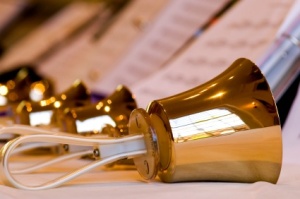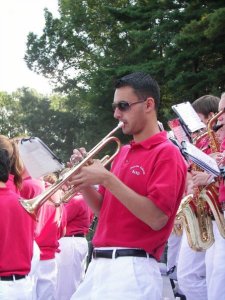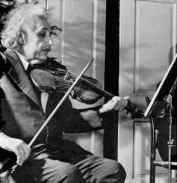I was three years old. I couldn’t have a conversation with my parents or my peers. My speech did not come to terms of my age. No one couldn’t understand what I was saying. I didn’t know how to form a sentence or how to communicate. It was so difficult to comprehend what people were telling me and I would panic. I had a hard time writing perfect and flawless papers.
Today, I still have that fear.
I was diagnosed with a learning disability when I was four years old. I went to speech-specialists from kindergarten all the way up to high school. Did it benefit me? Maybe. I mean, I was glad to get away from my classes to have one on one time with these special education professionals, but to tell you the truth, I still struggled. I hated the way my peers looked at me when I needed to go to the “resource room,” labeling me and other kids, SPED’s, and it was not easy growing up in elementary through middle school. I couldn’t understand or comprehend what my school material was asking, and I knew some of my teachers were frustrated with me because they couldn’t figure out why I couldn’t understand.
You can say, it was very discouraging that I would end up not being accepted from anyone with advanced minds.
 In the 5th Grade, my elementary school had a handbell choir. I wanted to join, but I had no idea how I would get in since the director discreetly chose his ringers. I found out in the fall that he had already picked his ringers, and guess what, they were all smart kids. Yes, I was very upset. Although I was in the 5th-grade band playing the Saxophone, I wanted to be involved with handbell ringing too. After the Christmas performance, two of the ringers decided that they did not want to be involved with the bell choir. My teacher knew that I wanted to do it, so he asked me to join. After the first rehearsal, he was impressed that I could sight read so quickly. It was a confidence booster.
In the 5th Grade, my elementary school had a handbell choir. I wanted to join, but I had no idea how I would get in since the director discreetly chose his ringers. I found out in the fall that he had already picked his ringers, and guess what, they were all smart kids. Yes, I was very upset. Although I was in the 5th-grade band playing the Saxophone, I wanted to be involved with handbell ringing too. After the Christmas performance, two of the ringers decided that they did not want to be involved with the bell choir. My teacher knew that I wanted to do it, so he asked me to join. After the first rehearsal, he was impressed that I could sight read so quickly. It was a confidence booster.
By sixth grade, I was a still in a resource room. I was teased and bullied by my peers. I was very different from the rest of the crowd. I never listened to the popular hits back in the day, such as Eminem, Blink 182, and more. I was still involved in a band but switched to the percussion section. I had good rhythm and could keep time. I almost quit the band because I didn’t like the new teacher at the time. My mom convinced me not to leave. She could see that I had a unique talent and something I could master in. I decided that I would stay, and I became fond of my new band teacher.
By eight grade, my speech therapist found that I could master my expression and language skills. This made me feel like I was not stupid at all. I started making new friends and became social with other peers in my classes. At the end of 8th grade, our band teacher wanted one of us to conduct the band during the graduation ceremony. I wanted to try and see if I could get a shot. I tried out, and was voted by the class to conduct at the ceremony; something I felt euphoric.

By the time I reached high school, everything had changed. I spent most of my time in the marching band playing the trumpet (an instrument that was hard for me). I learned how to take effective notes during my classes. It was mandatory for me to use the Resource Room in my schedule during high school, and I found out that I wasn’t asking for help like I use to back in middle and elementary school. I understood my homework and the material. I studied hard by using flash cards until I had the material memorized. It clicked then that I use this practice a lot of everyday with music. I practiced and practiced the material until I remembered it in my head. Not only was I memorizing stuff, but I was also learning tones and pitches (noted as perfect pitch). Perfect pitch is where someone can sing or hear a note without the assistance of a device or musical instrument. I also have a photographic memory (which is why I am a pro at getting around towns and cities).
Individuals usually state that high school was the worst time of their lives. Well, it turns out that it was the best four years of my life. I became more social with everyone around me; breaking out of my shell and putting my shyness into a box. I was very active in the Music program at school; participating in the handbell choir, band, choir, and select choir by my senior year.
I took music theory during my junior year and found that I had a talent for understanding how music works. By the time the class was over, I applied to the Advanced Placement Music Theory class. It sounds like an oxymoron for a learning disabled person to sign up and take an AP class. But it was something that I wanted to do and wanted to have music in my career field. It was a tough course to get through, but I learned so much about the advanced settings of music and passed with an A and received a 4 out of 5 on my AP test.
I was out of resource room by my junior year because I knew that I didn’t need the assistance before. It didn’t mean that I was out of the woods from learning things. I knew I still had (and still do) a learning disability. It was something that I labeled myself and took me a long time that other people were seldom about labeling me at all.

Albert Einstein was recognized as the smartest person in history. When he was young, he did destitute in school as an D average student. His grade school teachers told his parents to take him out of school because he was “too stupid to learn” and it would be a waste of resources for the school to invest time and energy in his education (how rude). Instead of following the school’s advice, Albert’s parents bought him a violin. Albert became good at the violin. Music was the key that helped Albert Einstein become one of the smartest men who has ever lived. Einstein himself says that the reason he was so smart is because he played the violin. He loved the music of Mozart and Bach the most. A friend of Einstein, G.J. Withrow, said that the way Einstein figured out his problems and equations was by improvising on the violin (O’Donnell, n.d.).
Music also helped Thomas Jefferson write the Declaration of Independence. When he could not figure out the right wording for a particular part, he would play his violin to help him. The music helped him get the words from his brain onto the paper.
After going through seven years of college and working on my masters, it goes to show you that learning differently does not mean you are stupid. Everyone is different, and I am myself. I don’t need to be anyone else by how they learn or how they got to where they are now. Music helps me strategize and work hard to be innovative and creative. If I have a tough time getting my thoughts out, such as this blog or writing my papers, I take a break and play my flute to brainstorm ideas. We escape our stress and our busy lives by turning to music. It fires our brain cells to think clearly and sharp.
For those of you who are going through the same thing, you are not stupid. You learn a different way. You are good at what you do every day, whether it’s sports, math, science, fine arts, or anything else, you are your true self. Don’t let others define who you are, how you learn, or how fast or slow you work. It’s your craft!
For more Information:
O’Donnell, L. (n.d.). Music and the Brain. Retrieved November 2, 2015, from http://www.cerebromente.org.br/n15/mente/musica.html
